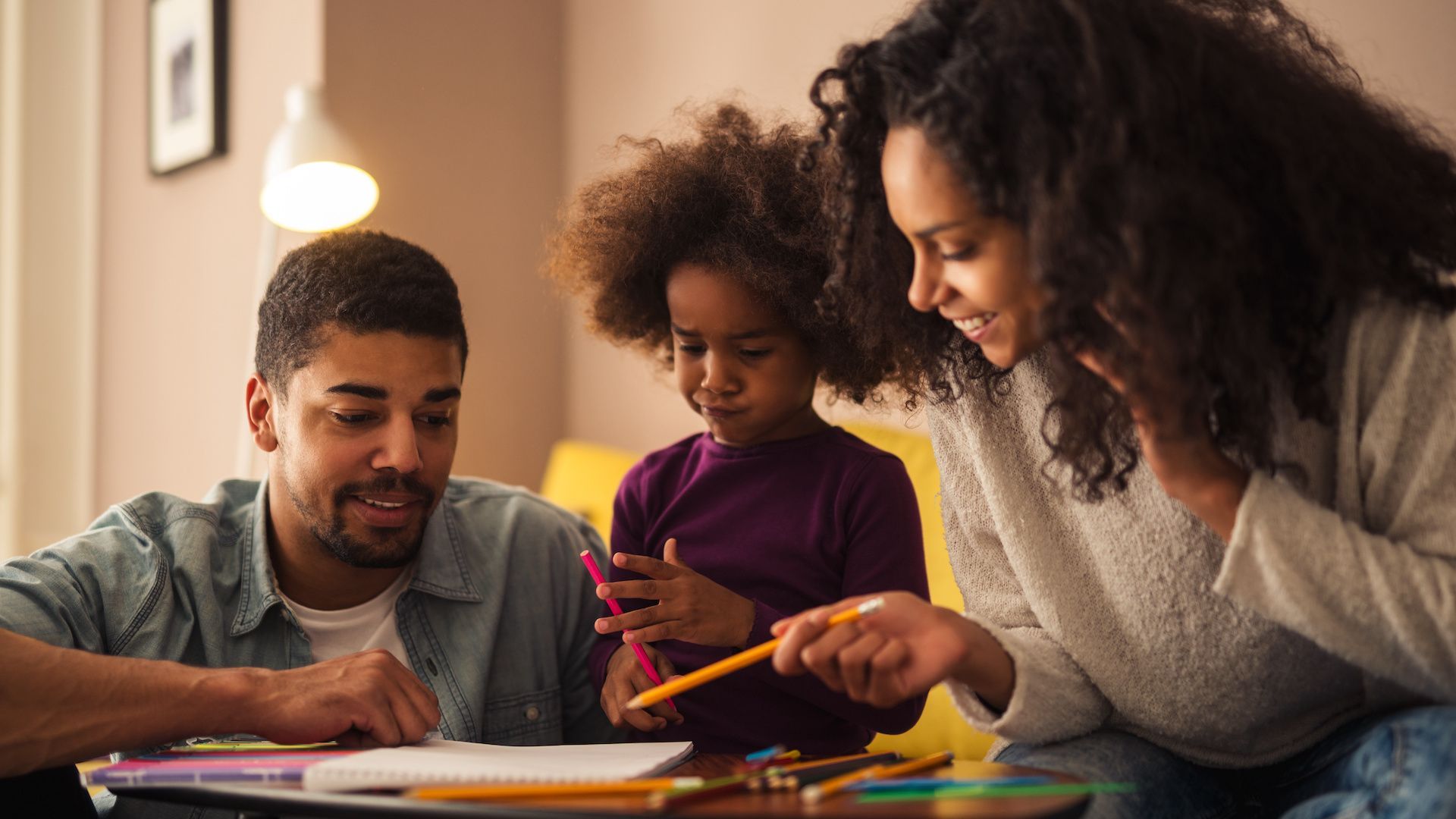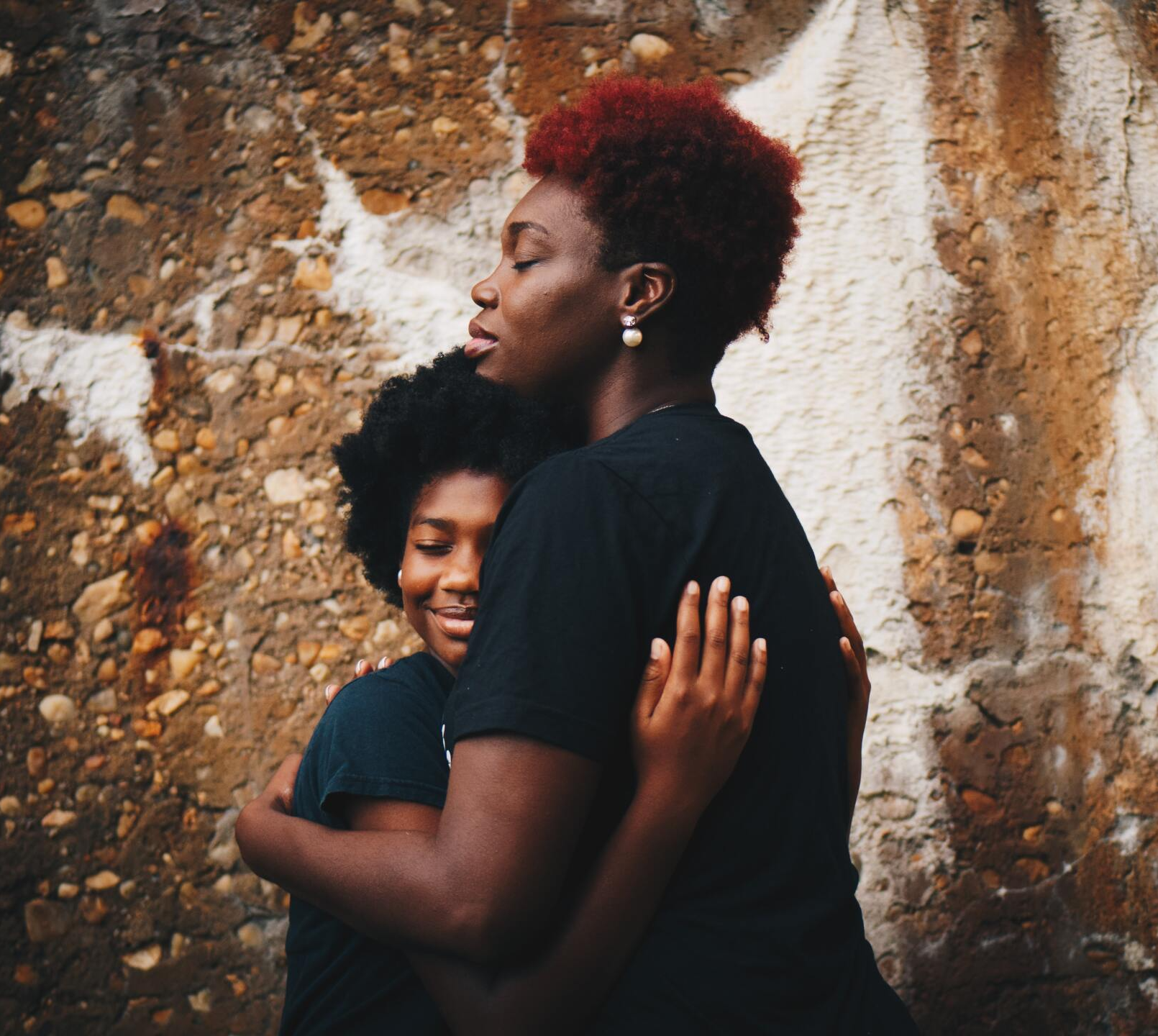Parenting through Grief: Reflections from a Jai Parenting Coach

Grief and parenting are two of life’s most intense sources of stress.
Parenting while grieving was one of the hardest things I have ever experienced in my life. My children were only 4 and 6 when I tragically lost my brother Chris, in 2013. I had experienced grief before, but this time it was very different. The pain was unimaginably intense, both physically and mentally. I’d never felt anything like it before. At times, I felt completely out of my body, other times I felt completely numb.
I had two young children counting on me for safety, security, comfort, and guidance. But grief is not concerned with your other responsibilities. Grief is one of the most intense emotions we experience in life. It is also something no one escapes. Riding the waves of grief when you have children relying on you for unconditional love is like trying not to spill your cup of coffee while you’re surfing.
The balancing act of grief and parenting is not one anyone would choose but it is possible to find ways to balance both without unintended consequences for our children’s emotional and cognitive development.
I have had the honor to use these practices while working with my clients who have experienced loss in their lives. One of my clients had multiple losses over a short period of time. Her children were naturally completely absorbed by her nervous system being dysregulated much of the time.
With the tools below, I was able to hold her as we explored the edges of her grief. She learned to soften and create shifts towards inner peace and clarity.
1) Acknowledge Grief
A sudden loss can leave you unprepared and mentally overwhelmed. Finding ways to acknowledge your painful emotions by allowing them to be just as they are, sitting with them, and really feeling them can be scary and counterintuitive but it is a key part of moving with and through the grief.
Being aware of your thoughts & feelings and acknowledging them even within yourself, is so important. You may hear a song or see a symbol that reminds you of the person you lost which can trigger an unexpected wave of memories and emotions. You may have days that you feel like you are losing your mind or you may experience anxiety or depression.
Some well-meaning people might tell you things like, “Time will heal.” And while time is a big part of the healing process, it is not the only part. It’s important to allow your grief space to pass through you and be felt when it arises. Crying when you feel like it and taking the time to express what you’re feeling to someone who loves you allows the grief to be processed instead of contained and avoided.
Talk to your children about what you are going through and encourage your children to ask questions or talk about how they feel. Reading age-appropriate books on bereavement and grief will help both the adult and child/adolescent cope, and their feelings will be validated through those narratives.
Loss is a devastating and unavoidable part of loving people. Normalizing this emotion and learning to acknowledge it will help your children when they inevitably face loss throughout their lives.
2) Care of Self
Grief is both mentally and physically exhausting. Drinking plenty of water, eating well, and getting rest when you can are important ways to care for yourself as you grieve.
When you find yourself experiencing thoughts and feelings that are overwhelming, using mindfulness can help bring calm and focus to the present moment. It can be hard not to worry about the past or the future, but there is much more peace to be found in the present moment, even temporarily.
Journaling was very helpful to me during my period of grieving. Putting your thoughts, worries, and feelings on paper and just leaving them there is one way to help you process them. Creating art and journaling is also a great tool to use with your children to help them process what’s going on in and around them.
Consider taking some time to yourself to evaluate the personal impact of your loss and how you’ll gently hold your grief along with your responsibilities to yourself, your children and family.
3) Move your body
Getting active helps our bodies release stress. We store grief and trauma in our bodies, and movement allows what we are carrying to be released. Going outside and into nature will drop your blood pressure and release endorphins (feel-good hormones) to help you feel better.
This is a great place to involve your children. Take them on a nightly walk, bike ride, do yoga, or just soak up the outdoors in any way.
4) Seek Support
Humans are wired for connection. Even though grieving can cause feelings of isolation, seeking social support can help you with your grieving journey.
Support can come in many forms. Ask a friend to come over to watch your children while you attend a grief support group once a week, accept a neighbor’s offer to cook your family dinner for the night or seek out a professional grief counselor in person or online for 1-1 support.
Don’t be afraid to ask your friends and family for help. Make a list of ways your loved ones can pitch in, and let them decide when and where they can help. Everyone needs added love and support during difficult situations.
5) Normalize grief with your children
The most valuable advice in helping children cope with a loss was from a therapist at the Police Department. It was so valuable. She said to answer your children’s questions and follow their lead. Only provide the answers to the questions they ask.
When my children asked me questions, I only answered their specific questions. I didn’t turn it into a huge lesson or discussion. I answered their questions and followed them until they didn’t have any more questions.
This relieved so much pressure from me, thinking that I needed to teach them everything through this process. I remember my 6-year-old asking me very concernedly, “What will he eat in heaven?” I looked at him and told him with a smile, “Whatever he likes to eat!” That was a good enough response for him as he processed and continued with whatever he was doing. Their natural curiosity should be honored and nurtured by creating a safe space for them to talk to you.
It's ok for your children to see you experiencing the plethora of emotions that grief brings. This helps them acknowledge and attune to the emotions they are feeling and any questions they might have.
One thing I have learned is that grief will come and go, and it’s not something anyone (parent or child) can just “get over.” It really is about learning how to live with the pain, by having healthy emotional supports in place.
There are different stages of grief. While not everyone suffering will experience each step, many will do so without realizing it. You might notice a change in your demeanor initially, and you may feel short-tempered, angry, or frustrated.
Regardless of age, loss and death are part of the cycle of life and children need to be supported in understanding that.
Encourage your children to ask you questions, so they feel less anxious about not knowing all the answers. Give your child the time and space to share their feelings with you and enable them to sort out their feelings. Actively listen and provide empathy when discussing the death of their loved one. Pay attention to expressions of their thoughts, feelings, concerns and questions.
With support and guidance you and your children can walk and grow through grief together.
Meet Your Author,
Michelle Tovar
Michelle is a certified Jai Parenting Coach and a Montessori educator for over 20 years. As the proud owner of Practical Life Parenting, she helps overwhelmed parents who are exhausted from the power struggles, gain cooperation from their children using effective communication. She guides parenting partners to strengthen relationships and bring more peace and joy to their homes.
As a first-generation Colombian-American, Michelle is passionate about breaking cultural and generational patterns of parenting by helping her clients rewire their subconscious programmed patterns that are no longer serving them.
Michelle loves to travel and participate in adventurous activities with her 3 boys and husband. She lives outside of Tampa, Florida, where you will find her on the sidelines cheering on her boys pretty much every weekend.
Website: www.theparentlifecoach.com
IG: @parentlifecoach
READ MORE:
Curious for more?














